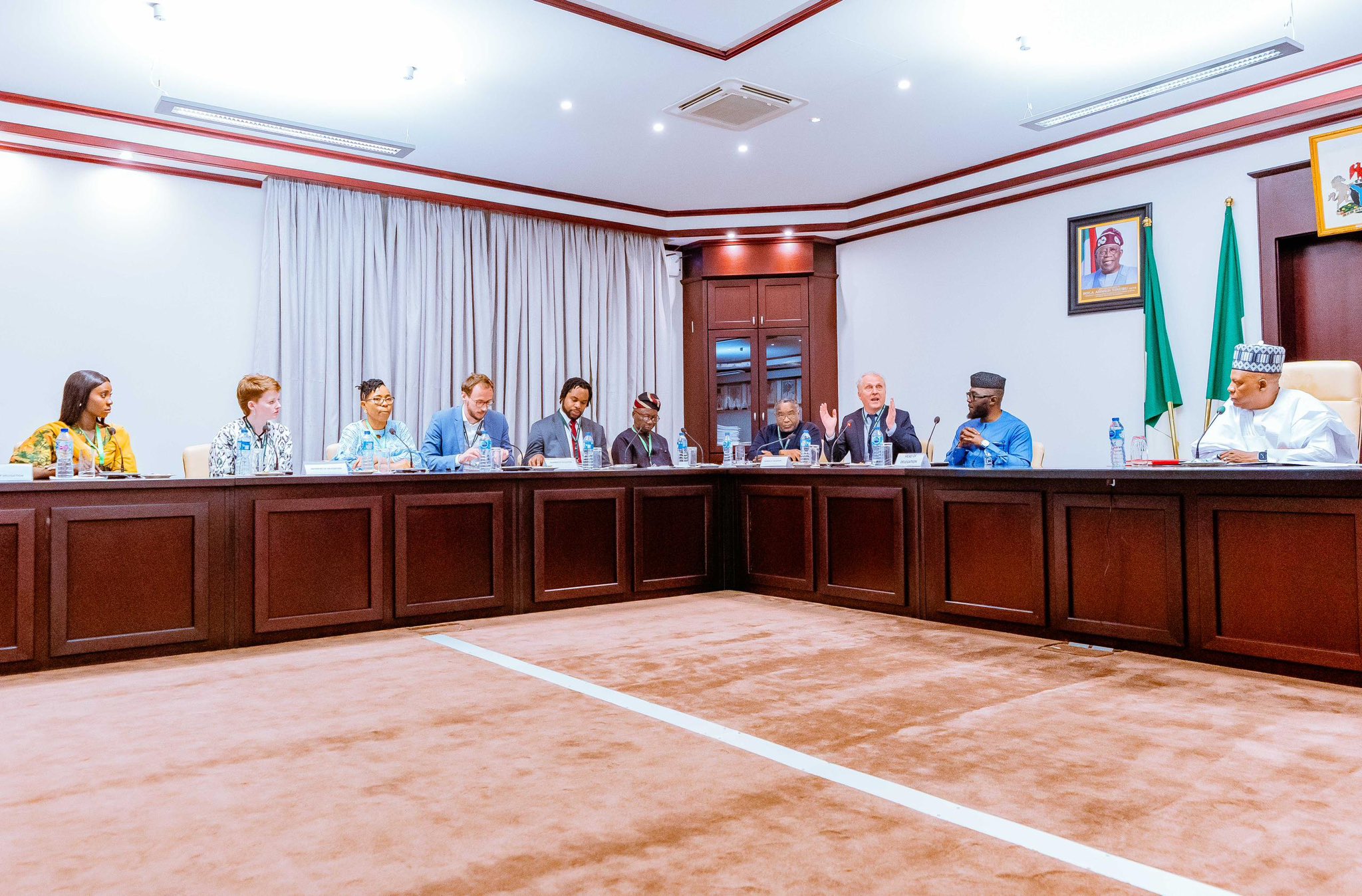
..Says initiative will foster transparency, effective governance, sustainable development


Vice President @KashimSM has given an insight into the Presidential Initiative for Innovation, Policy Evaluation, and Research (PIIPER), saying the initiative is targeted at transforming policymaking in Nigeria through a multifaceted approach.
He outlined the approaches to include “encompassing data gathering, rigorous research, innovation integration, stakeholder engagement and thorough documentation of government functions and decisions.”
The VP disclosed this on Friday during a meeting with a delegation from the Firoz Lalji Centre for Africa from the London School of Economics and Political Science (LSE) and a pre-launch meeting of the Presidential Initiative for Innovation, Policy Evaluation, and Research (PIIPER).

In his address titled, “Our Journey to a Data-Forward Future,” the Vice President said, “PIIPER will further extend its reach by coordinating national policy research and innovation fellowships, fostering regular dialogues, and engaging in comparative analyses to benchmark Nigerian policies globally.
“This initiative is geared towards addressing Nigeria’s development challenges, promoting transparency, and collaboration to ensure effective governance and sustainable development.”
Senator @KashimSM sought collaboration on PIIPER with the London School of Economics and Political Science (LSE) and its delegation from Firoz Lalji Institute for Africa, describing the initiative as a transformative journey.
He particularly applauded Professor David Luke and Professor Tim Allen “for their dedication to unravelling the intricacies of the political economy of Africa through their impactful contributions at the Firoz Lalji Institute for Africa”.
The VP singled out Professor Luke who he said has taken a bold step towards shared objectives with the unveiling of his work, “How Africa Trades,” describing it as an exciting chapter.
He continued: “My anticipation to meet you grew exponentially when I learned about the mission and the intellectual depth embedded in this significant work.
“Your presence today emphasizes our shared commitment to shaping a future where Africa is not relegated to the footnotes of our discourse on development. The link between gown and town is one that we can’t afford to sever because the repercussions are dire.
“Thankfully, your institution understands the intersection of politics and economics and, of course, knows the causes of things—as its motto goes. This is why I am delighted to learn that the relationship between LSE and Africa is more than a distant theoretical projection”.
Noting that as a key player in Africa, Nigeria assumes “the responsibility to understand and shape the course of Africa’s economic destiny,” Shettima observed that the nation’s “commitment to inclusivity and sustainable development has never been in doubt, and “How Africa Trades” aligns with this grand vision.
“We believe that trade is the lifeblood of nations. It intertwines destinies and moulds futures. This book, through its comprehensive analysis, sets out to serve as a guidance for all policymakers to navigate this complex web with knowledge and foresight. It lays bare the mechanisms through which trade can be harnessed as a force for good, a catalyst for development that uplifts the lives of all our people,” he added.
Earlier in his address, the leader of the delegation and Senior Special Assistant to the President on International Cooperation, Dapo Oyewole, who is also the coordinator of the LSE Alumni Association in Abuja, said part of his job is to take the best of Nigeria to the world and attract the best of the world to Nigeria.
“Our work will help to bridge the gap between research and policy and attract the best ideas emanating from rigorous research and analysis from around the world in the achievement of the Renewed Hope agenda of President @officialABAT,” he said.
Also, the Director of the Firoz Lalji Centre for Africa and Professor of Development Anthropology in LSE’s Department of International Development, Tim Allen, said the goal of the initiative is to bring Africa at the core of what the LSE does.
“When I give lectures on African development to an audience that is maybe one person from sub-Saharan Africa; I said that was a serious problem for my institution. The LSE used to be important in thinking about Africa and so many African heads of state have been trained in LSE in the past. So, we are very serious now about bringing Africa at the core of the LSE,” he said.
The book editor, Professor David Luke, said, “How Africa Trades” is an invaluable open-access resource for making sense of the continent’s major trade challenges, including commodity dependence, competitiveness, and how African countries engage with often unconducive international trade rules that distort global markets.
The Special Adviser (SAD) to the President on NEC and Climate Change, @RukkyBE, said her office is able to foster intra-state trade partnerships and bolster productivity.
“We seek comparative and complimentary advantages of the states. There was previously the Kebbi State and Lagos State partnership on rice but when we saw the one between Lagos and Niger State, we were delighted to see it,” she said.
Also, the Senior Special Assistant to the President on Research and Analytics, @gimbakakanda, noted that there was a greater need for a strong link between academia and society, emphasizing the need for government to be guided by research in policy making.


